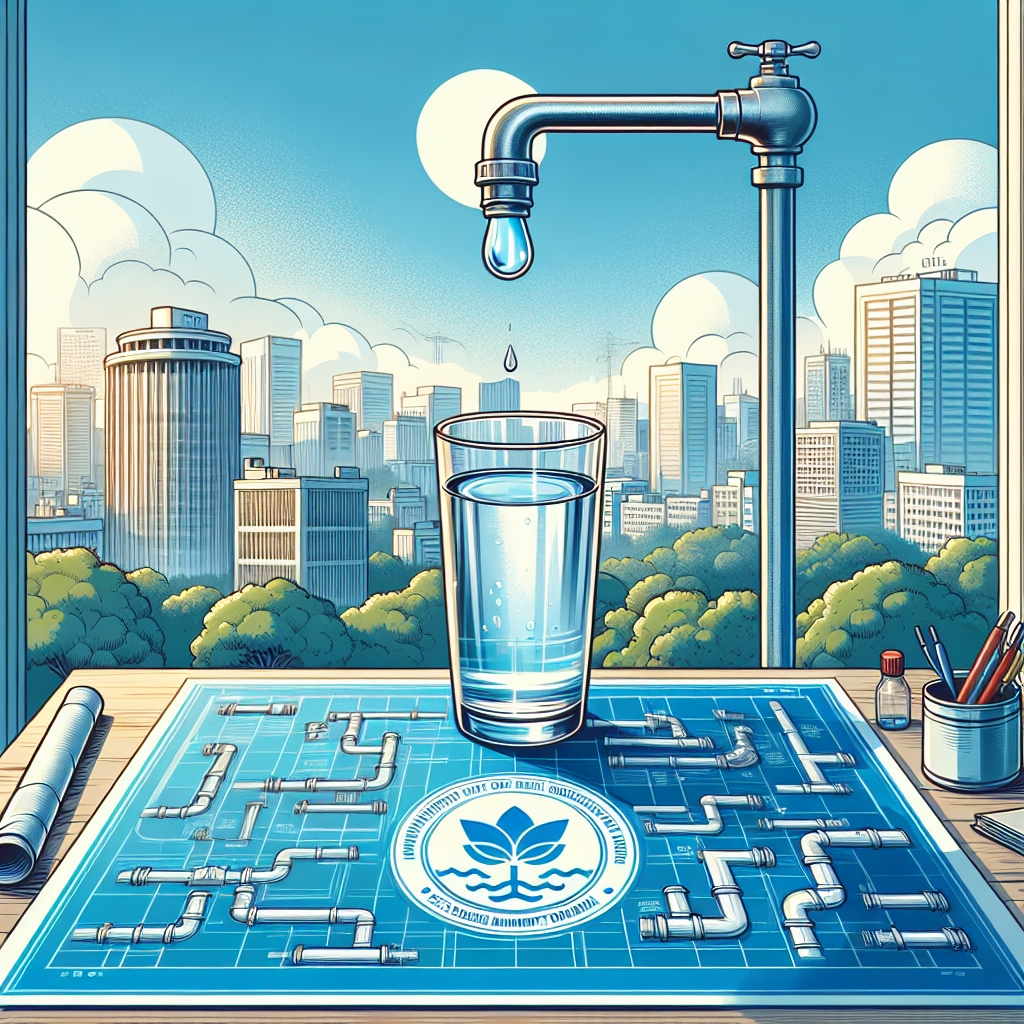DWS Charts the Path for a Sustainable and Equitable Water Future
Dr. Mathye reminded delegates that water is not just a service, but a fundamental human right and the cornerstone of health, dignity, and economic progress.

- Country:
- South Africa
In a strong reaffirmation of its constitutional mandate, the Department of Water and Sanitation (DWS) has underscored its ongoing commitment to ensuring that all South Africans have access to sustainable, reliable, and equitable water and sanitation services. Speaking at the Commission on Policy Review and Legislative Reforms in Midrand, the department’s Deputy Director-General, Dr. Risimati Mathye, highlighted the government’s renewed focus on systemic reforms, institutional strengthening, and long-term resource management.
Dr. Mathye reminded delegates that water is not just a service, but a fundamental human right and the cornerstone of health, dignity, and economic progress. “Water security is central to South Africa’s development and human well-being. We must ensure that water is managed and delivered with sustainability in mind—not just for today, but for generations to come,” he said.
Reflecting on 25 Years of Progress, Planning for the Next 25
The two-day forum brought together government leaders, policymakers, municipal representatives, and private sector stakeholders to evaluate the progress made in water governance over the past 25 years of democratic local government. It also aimed to define a forward-looking strategy for the next quarter-century, focusing on inclusive growth and sustainable development.
Dr. Mathye noted that while major strides have been made in expanding water access since 1994, significant challenges remain, including ageing infrastructure, water losses, climate-related droughts, and uneven service delivery between urban and rural areas. “Our mission is twofold: to close existing service gaps while laying the foundation for a resilient, well-managed water sector that can meet the demands of the future,” he said.
Key Reforms to Strengthen the Water Sector
To achieve these goals, the DWS has outlined a comprehensive reform agenda anchored in institutional accountability, professionalisation, and innovation. Among the key policy and legislative priorities are:
-
Professionalisation of Local Government: The department plans to build stronger local water governance by enhancing technical skills, enforcing accountability mechanisms, and promoting ethical leadership within municipalities.
-
Legislative Reforms: Proposed legislative changes will strengthen oversight, ensure transparent governance, and streamline the framework governing water management and service delivery.
-
Establishment of an Independent Water Sector Regulator: The creation of a dedicated regulator aims to improve transparency, fairness, and efficiency in the water sector—similar to models already successful in the energy and telecommunications sectors.
-
National Water Action Plan: A comprehensive plan that will coordinate government, private sector, and community efforts to address water scarcity, pollution, and infrastructure deficits while promoting conservation and reuse.
These interventions reflect a decisive shift toward a professional, depoliticised, and performance-driven water sector, aligned with South Africa’s broader reform and growth objectives.
Operation Vulindlela Phase 2: Accelerating Structural Transformation
Dr. Mathye also highlighted the central role of Phase 2 of Operation Vulindlela, a flagship reform programme jointly led by the Presidency and National Treasury, established in October 2020 to accelerate structural reforms and unlock investment in critical sectors.
Under Operation Vulindlela’s water and sanitation reform agenda, the focus is on:
-
Streamlining regulatory processes to speed up project approvals and reduce red tape;
-
Enhancing public-private collaboration to attract investment in infrastructure development;
-
Improving institutional efficiency through entities like the National Water Resources Infrastructure Agency (NWRIA) and Catchment Management Agencies (CMAs); and
-
Building climate resilience by investing in adaptive infrastructure and efficient water resource management.
These reforms, Dr. Mathye explained, are vital to ensure long-term water security, reduce dependency on overstretched municipal systems, and encourage sustainable water use across agriculture, industry, and households.
Building Partnerships for a Water-Secure Future
Central to DWS’s approach is collaborative governance—the belief that lasting solutions require partnerships among government, private sector, civil society, and local communities. The department is engaging with municipalities to rehabilitate old infrastructure, develop new water treatment facilities, and modernise sanitation systems using innovative and cost-effective technologies.
Dr. Mathye emphasised that community involvement and behavioral change are key to water sustainability. “Water is everyone’s responsibility. Every drop counts, and together we can build a culture of conservation and stewardship,” he said.
A Vision for the Next Generation
As South Africa prepares for its next 25 years of democratic governance, the DWS’s reform agenda represents a bold vision for transformation—one that links economic growth, environmental protection, and social inclusion through responsible water management.
The department’s long-term strategy aligns with the National Development Plan (NDP) 2030, which envisions universal access to safe water and dignified sanitation, supported by efficient institutions and well-maintained infrastructure.
With climate change intensifying water stress across southern Africa, the reforms announced by Dr. Mathye reaffirm the government’s determination to protect this most precious resource while ensuring that no South African is left behind.
The DWS’s renewed policy focus underscores that sustainable water and sanitation access is not just an environmental or technical challenge—it is a moral, social, and developmental imperative. Through Operation Vulindlela Phase 2, institutional reform, and strong partnerships, South Africa is moving decisively toward a future where every citizen can depend on clean water, efficient sanitation, and responsible governance.
As Dr. Mathye aptly concluded: “Water connects us all. By managing it wisely today, we secure life, health, and prosperity for tomorrow.”
- READ MORE ON:
- South Africa
- Department of Water and Sanitation
- Risimati Mathye
- Operation Vulindlela
- Water Sector Reforms
- NWRIA
- Catchment Management Agencies
- Sustainable Development
- Sanitation Access
- Local Government
- Policy Review
- Climate Resilience
- Water Security
- National Treasury
- Presidency of South Africa










